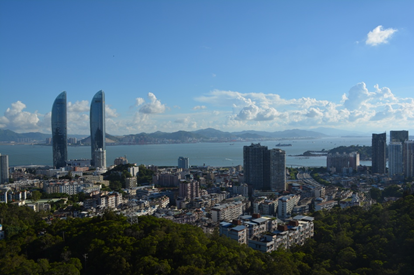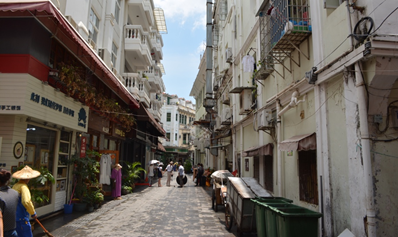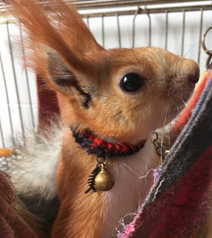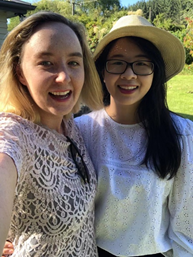By Laura Carter
At age 18 I was extremely naive about the world’s most populist country with one of the richest histories. The western media had fed me an image of a totalitarian empire and I knew so little that I believed Chairman Mao Zedong was still alive.
When I finished school, I had little idea of what I wanted to do. I watched my classmates ship off to universities with clear career paths, whereas I still lacked passion for anything. After working for a year, I considered the typical overseas experience in Europe, but Asia was always more interesting to me. A quick Google search revealed that with the help of Lattitude Global Volunteering I could live and work in Vietnam for a 6-month teaching placement. It was November of 2014 and the applications – I saw on the website – had closed in July of that year.
My mother insisted that I should send them an email, to see if they had any space. I was informed that while Vietnam was not available, they still had some spaces in the upcoming China trip. I told Lattitude I would do a 6-month placement, but no more, and in February of the next year I was on a plane bound for Xiamen, China.
I felt immediately at home in China, the chaos, the people, all the foreign sounds and smells merged into this beautiful cacophony of a second home.

Xiamen is a beautiful coastal city in the province of Fujian in southeast China. The gem of the city is Gulangyu Island, a short ferry ride away. The pedestrian-only island is a UNESCO heritage site full of winding cobblestone alleys and heritage buildings that once housed foreign consulates.

I was employed on a volunteer basis teaching English at the local school. I taught grades 6 and 7 at the middle school and one day a week I travelled to the sister school where I taught grades 1 and 2. My lessons were primarily teaching the students conversational English, and the classes were always filled with laughter and joy.


Laura with Grade 2 students (left picture)
Laura with Grade 6 students (right picture)
I discovered very quickly that teachers are revered in Chinese society and as an English teacher I was in high demand. The level of respect that my students showed me was remarkable considering I was only a few years older than some of them.
I could not speak a word of Chinese besides “hello”, “thank you”, and “coffee”. I had assumed that English would be more widely spoken so it was shocking to discover that if I wanted to eat, I had to learn how to order in Chinese.
My diet in China consisted of dishes that were easy to pronounce, or simply pointing to something someone else was eating. I spend a lot of time at the Muslim restaurant just outside the gates of my housing complex. It was always very clean and there were photos of the dishes on the wall so I could just point to the “fried egg and tomato ” 西红柿炒鸡蛋 dish.
My order was so predictable that all I had to do was walk in and sit down, and a few moments later the food would appear in front of me. I became good friends with the server, Tom, as I called him, and he would often come and sit with me. He could not speak a word of English and my Chinese was minimal, but we would have conversations over Baidu translate. He remarked once that even though we could not understand each other, we were good friends. It was these relationships that were so integral to my time in China.
I spent most of my free time outside of lessons in the local coffee shop. MAAN coffee was a western-style coffee chain similar to Starbucks. I became great friends with the staff members, most of whom were my age and had left their rural villages to work in the city. A lot of them stayed for only a few years to make some money before moving back home to get married and start families.
 Without a flatmate, my apartment was a bit lonely in the evenings, so I went to the pet shop to find a pet to keep me company. As soon as I walked in, I saw a cage with red squirrels and knew I had to get one. I had never seen a squirrel before and knew very little about how to care for one, but Mickie became my ultimate sidekick. He used to sit on my shoulder while I walked around the flat and I even took him to class a few times.
Without a flatmate, my apartment was a bit lonely in the evenings, so I went to the pet shop to find a pet to keep me company. As soon as I walked in, I saw a cage with red squirrels and knew I had to get one. I had never seen a squirrel before and knew very little about how to care for one, but Mickie became my ultimate sidekick. He used to sit on my shoulder while I walked around the flat and I even took him to class a few times.
The people of China, and particularly the people of Xiamen welcomed me in, and while I looked different, I never felt out of place. Xiamen changed me, it taught me how to be independent, how to stand up for what I believed in and overall, how to love.
 By November of 2016, it was time to pack my bags. It was a very difficult decision to make as I had been offered a position as headteacher only a few months before. However, in April of that year, I had met and fallen in love with Cara, originally from Guangzhou who was studying in Auckland.
By November of 2016, it was time to pack my bags. It was a very difficult decision to make as I had been offered a position as headteacher only a few months before. However, in April of that year, I had met and fallen in love with Cara, originally from Guangzhou who was studying in Auckland.
I have since been back to China 5 times, every year celebrating Chinese New Year with Cara and her family and have visited about 30 different cities. I wholeheartedly believe I have found my passion. China is the only thing that has ever truly excited me and I am a better person for having lived and travelled there.
I am going to leave you with a quote that sums up my time in China, “You will never be completely at home again. Because part of your heart will always elsewhere. That is the price you pay for the richness of knowing and loving people in more than one place.”
 About the author
About the author
Laura travelled to China at 18 for a 6-month teaching placement and stayed for two years. Laura has since completed a Bachelor of Arts from AUT university majoring in Chinese with a minor in International Business. Her passion for China is unwavering and she has great respect for the culture and the history. She is currently managing her family’s farm while she considers her next move.









